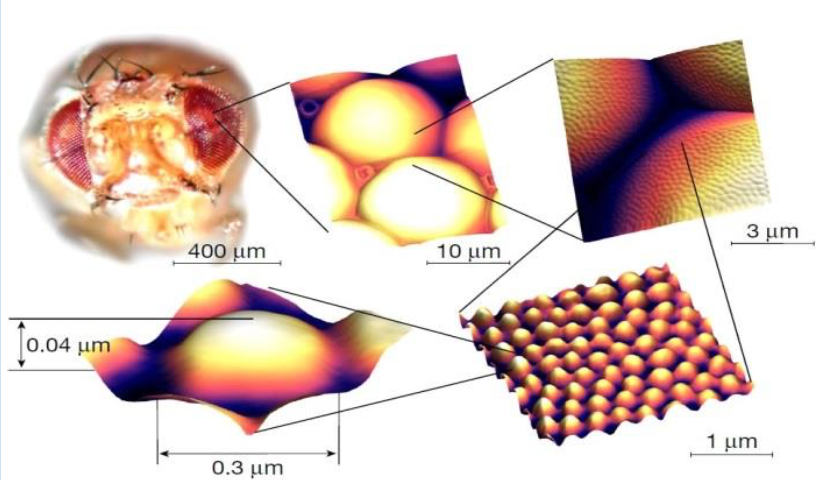It is anti-reflective, self-cleaning and biodegradable
Researchers from Russia and Switzerland have artificially reproduced the nano-coating of the cornea of fruit flies (Drosophila). The cornea of fruit fly is naturally designed to protect the eyes of the insects from the smallest dust particles and shut off the reflection of light.
The team has reproduced safe biodegradable nano- coating with antimicrobial, anti-reflective, and self- cleaning properties in a cost effective and eco-friendly way. The constituent components of the corneal coating are retinin (protein) and corneal wax (lipids).
Scientists rebuilt the corneal coating by direct and reverse bioengineering methods. They took the retinin and corneal wax and reassembled it, covering glass and plastic surfaces. The protection coating might find applications in medicine, nano-electricals, automotive industry, and the textile industry.


